Title VII
Title VII
Title VII of the Civil Rights Act of 1964 is a federal law that prohibits employers from discriminating against employees on the basis of sex, race, color, national origin and religion. It generally applies to employers with 15 or more employees, including federal, state, and local governments. Title VII also applies to private and public colleges and universities, employment agencies, and labor organizations.
Griswold v. Connecticut
Griswold v. Connecticut
In 1965, the Supreme Court overturned one of the last state laws prohibiting the prescription or use of contraceptives by married couples.
Executive Order 11246
Executive Order 11246
Passed in 1968, Executive Order 11246 prohibits sex discrimination by government contractors and requires affirmative action plans for hiring women.
Dorothy Weyer Creigh
1921-1982
A 1942 summa cum laude graduate of Hastings College, Dorothy Weyer earned her master’s degree at Columbia University’s Graduate School of Journalism where she was a Hitchcock Scholar. After graduation, she worked briefly for the Hastings Tribune and taught at Hastings College. She became active in education and history efforts.
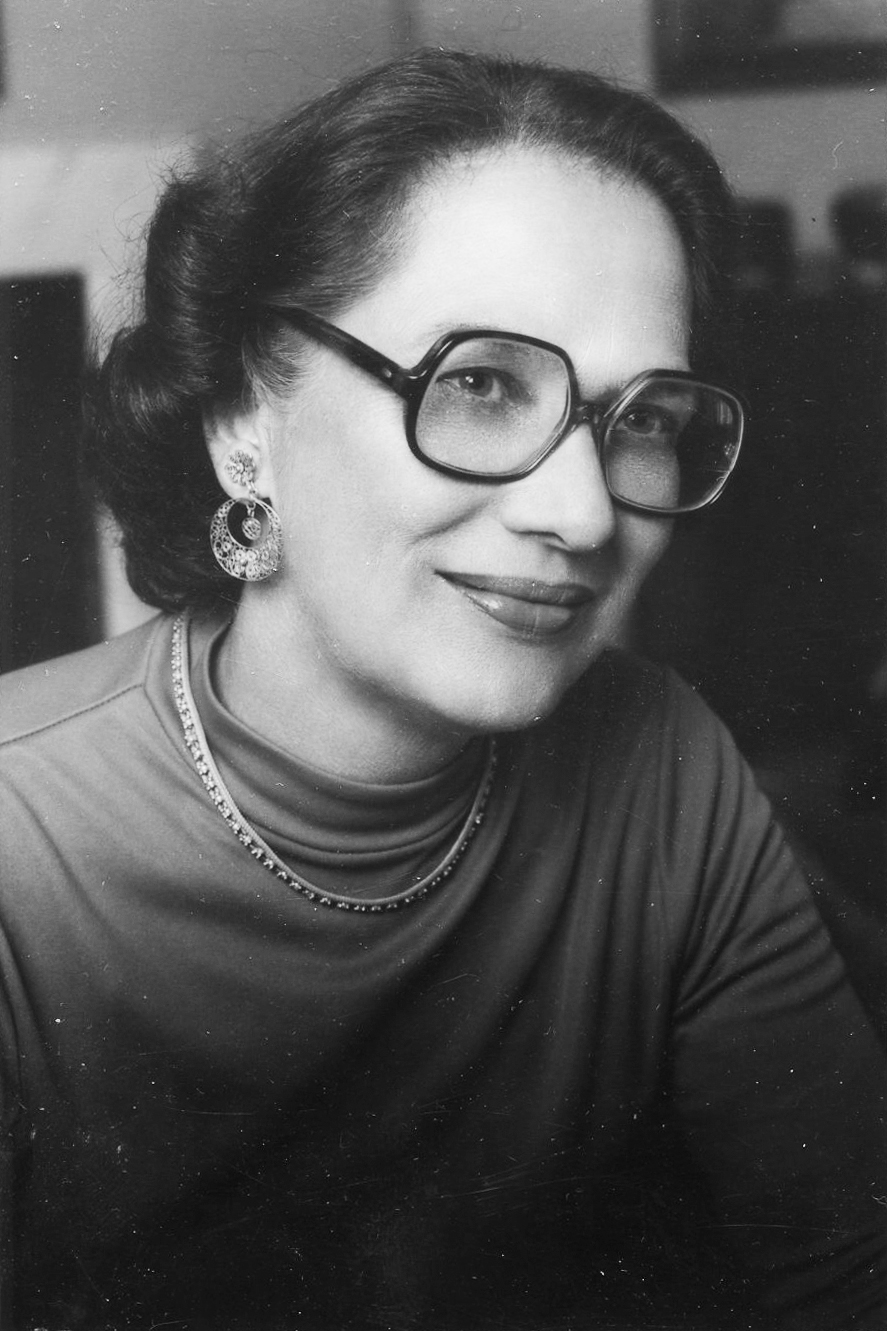
Dorothy Weyer Creigh. Courtesy of Adams County Historical Society.
Dorothy served on the Nebraska State Board of Education, the Governor’s Commission on Higher Education, the Nebraska Art’s Council, and the boards of the Nebraska State Historical Society and the Adams County Historical Society, which she founded in 1965.
Dorothy described herself as a housewife, but her true passion was Adams County history. In 1973, she was acknowledged by the American Association of State and Local History for her two-volume history of Adams County. She wrote 52 Nebraska history articles that appeared as serial newspaper advertisements for the centennial celebration of Lincoln’s Miller & Paine department store. She was also the author of more than 15 books, mostly about Nebraska history, and produced more than 15 books, mostly about Nebraska history, and produced six documentaries on the Great Plains. Dorothy’s goal was to persuade people that local history was interesting and worth pursing.
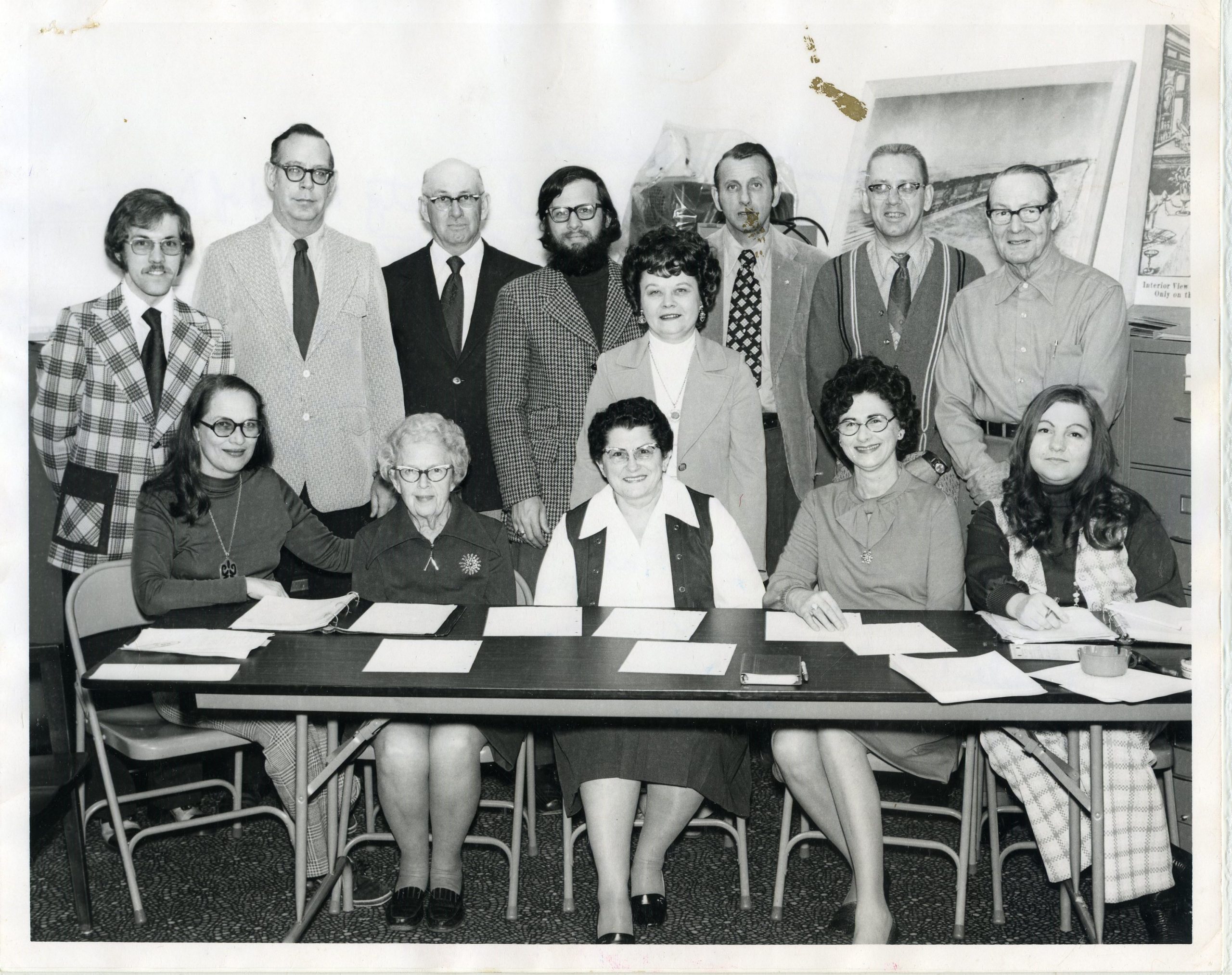
Adams County Historical Society Board of Directors, January 16, 1975. Dorothy pictured front left. Courtesy of Adams County Historical Society.
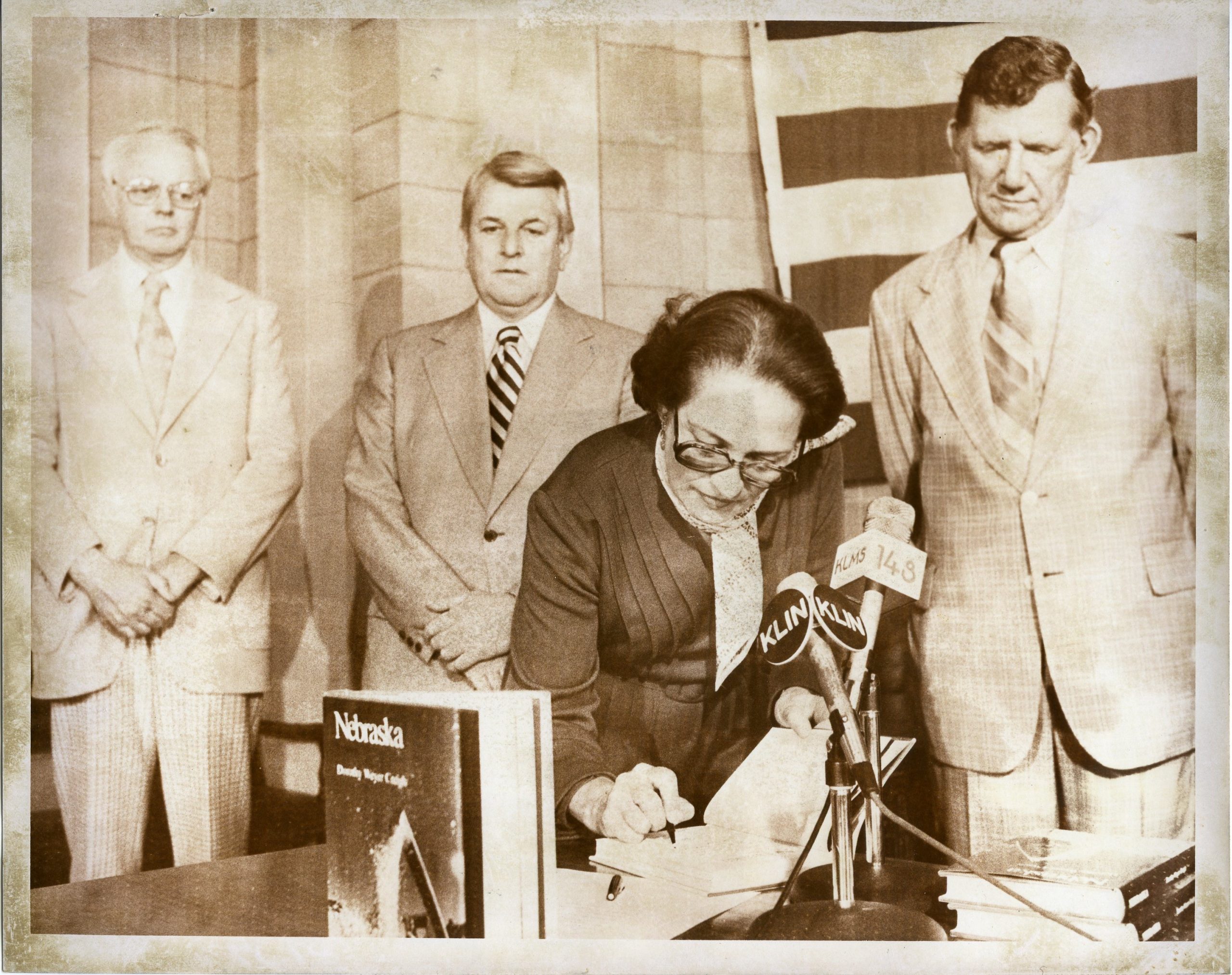
Dorothy Creigh presenting Nebraska book to governor, Lincoln State Capital. Courtesy of Adams County Historical Society.
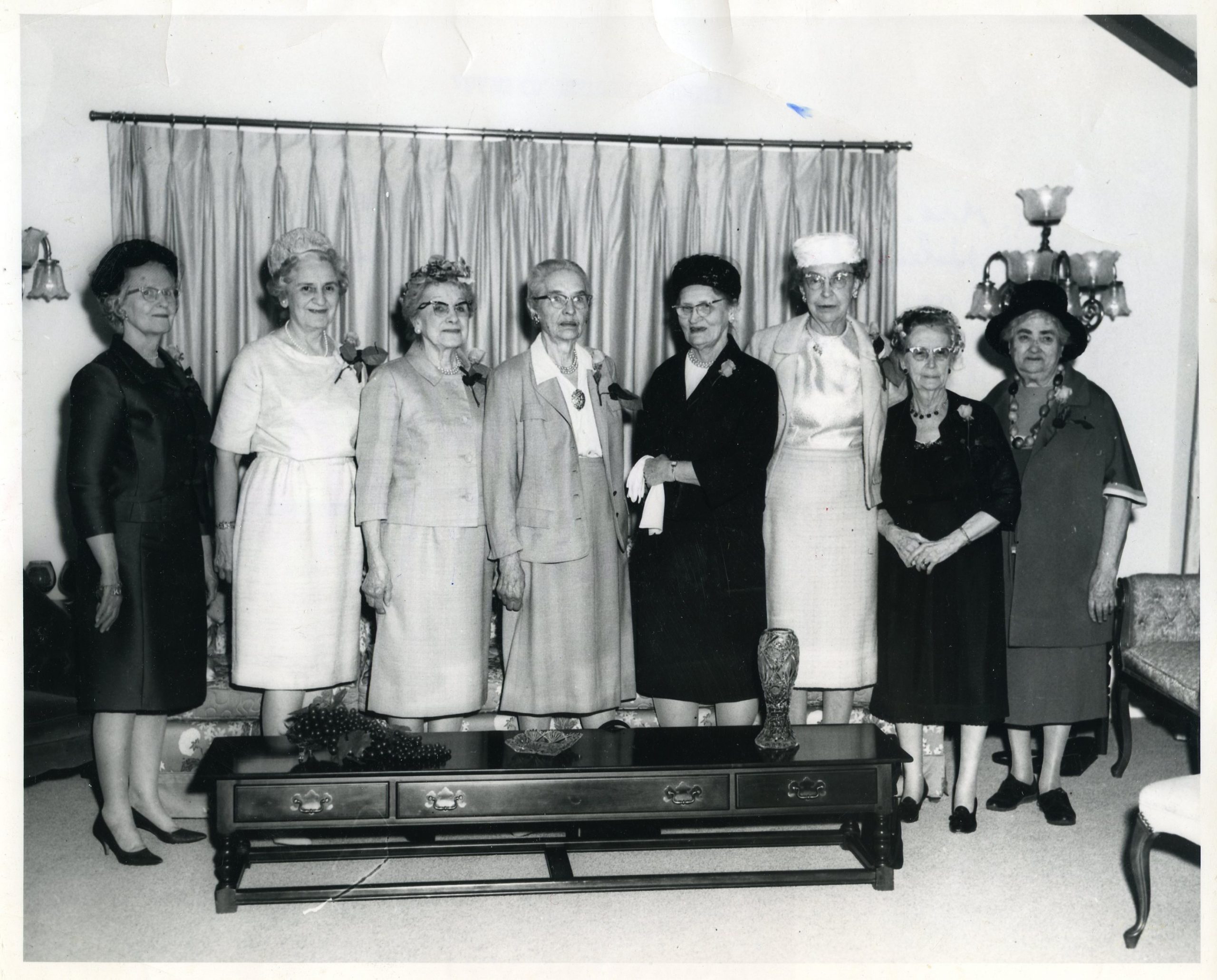
Medical Auxiliary Club, 1970. Courtesy of Adams County Historical Society.
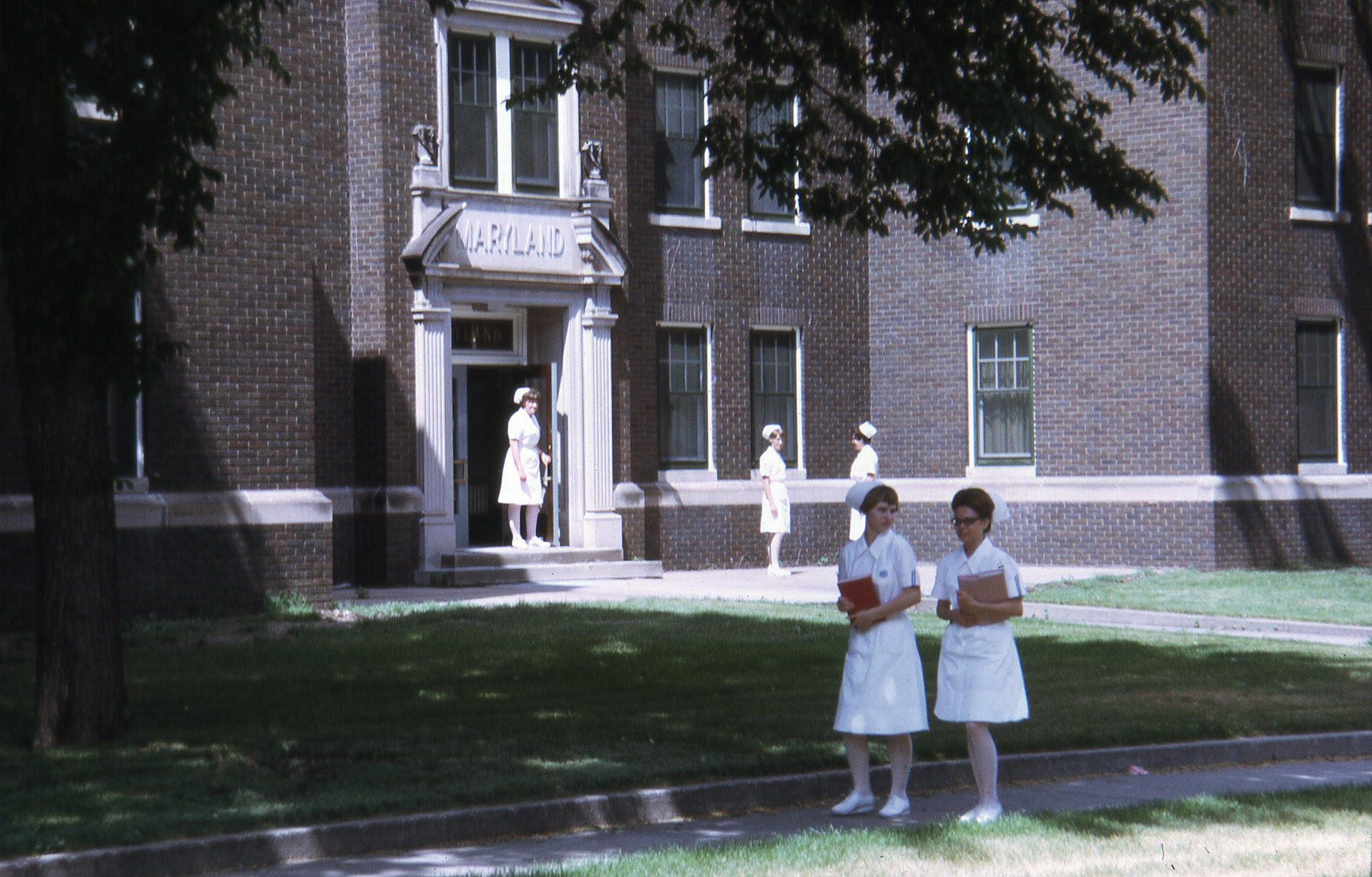
Mary Lanning School of Nursing. Student nurses in front of Maryland Hotel, 1968. Courtesy of Adams County Historical Society.
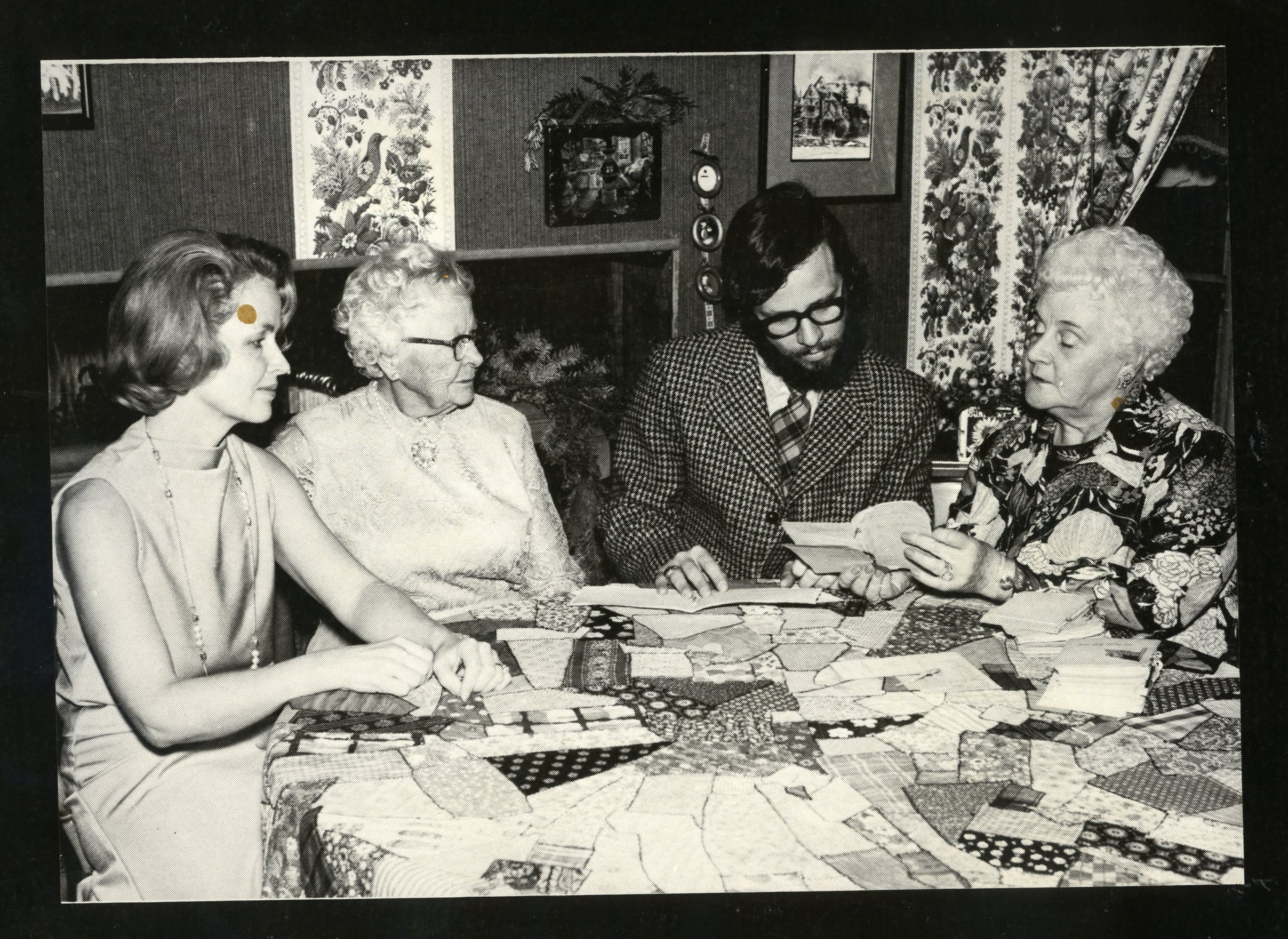
George Eliot Club, December 1974. Left to right: Virginia Mastin, Mabel Lyman, Lawrence Pizer and Helen Clance. Courtesy of Adams County Historical Society.
1971
1971
The Supreme Court outlawed the practice of private employers refusing to hire women with preschool-age children.
For the first time, the Supreme Court invalidated a law that discriminated based on sex in Reed v. Reed. Prior to this, the Supreme Court upheld laws that barred women from practicing law, enacted a minimum wage for women only, prohibited women from working in restaurants at night, prevented licensing women as bartenders, and exempted women from obligatory jury duty.
1972-1974
1972-1974
In 1972 the Supreme Court ruled that the right to privacy encompasses an unmarried person’s right to use contraceptives.
Title IX, of the Education Amendments of 1972, protects people from discrimination based on sex in education programs or activities that receive Federal financial assistance.
The U.S. Supreme Court bans sex-segregated “help wanted” advertising as a violation of Title VII of the Civil Rights Act
in 1973.
In 1973, the U.S. Supreme Court made a ruling on Roe v. Wade, protecting a woman’s right to terminate an early pregnancy.
Title VIII of the Civil Rights Act, known as the Fair Housing Act, was passed in 1974. It prohibited discrimination concerning the sale, rental and financing of housing based on race, religion, national origin, and sex.
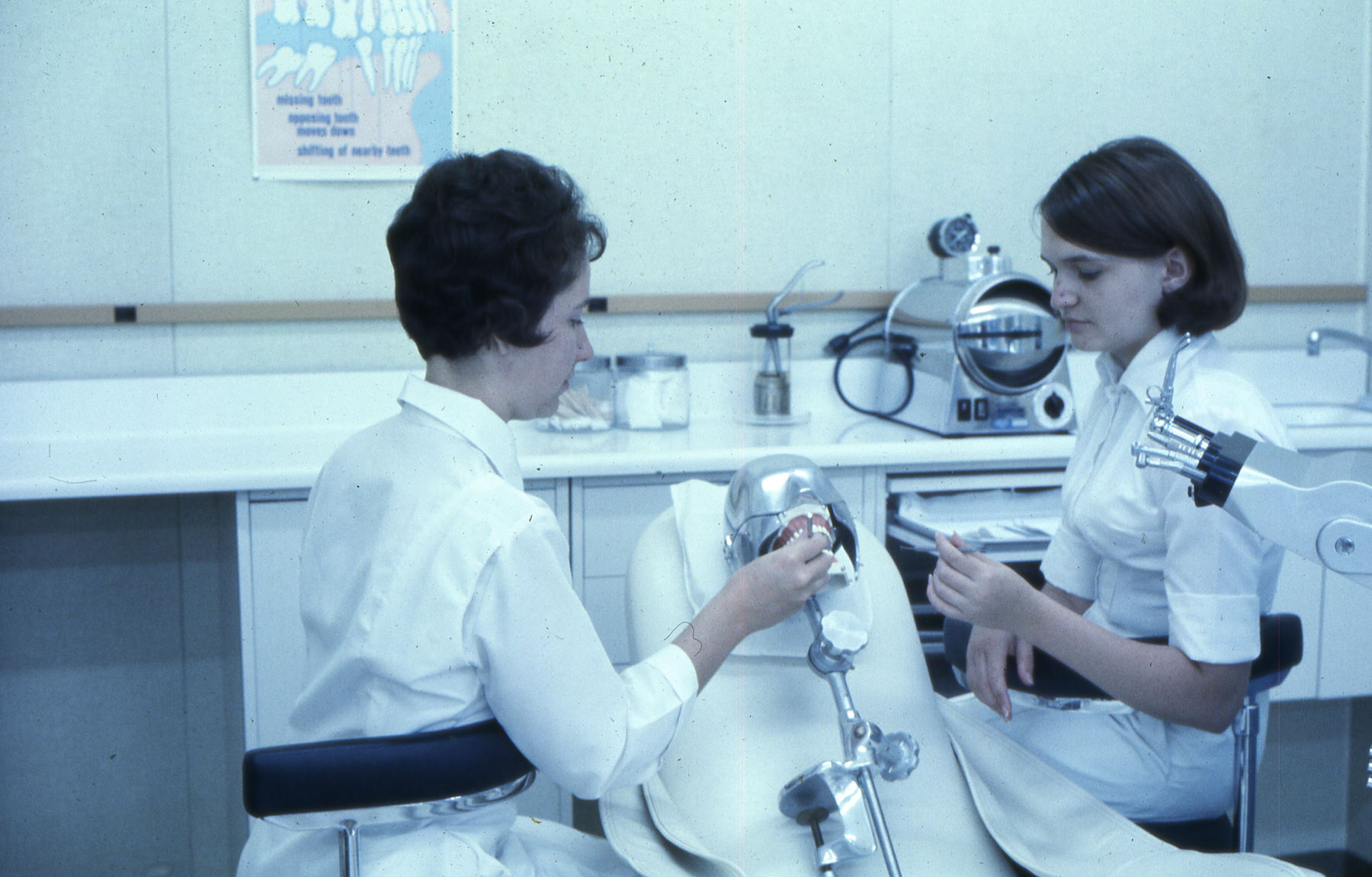
Central Community College dental assisting program, ca 1970.
The Pregnancy Discrimination Act
The Pregnancy Discrimination Act
In 1978, The Pregnancy Discrimination Act banned employment discrimination against pregnant women.
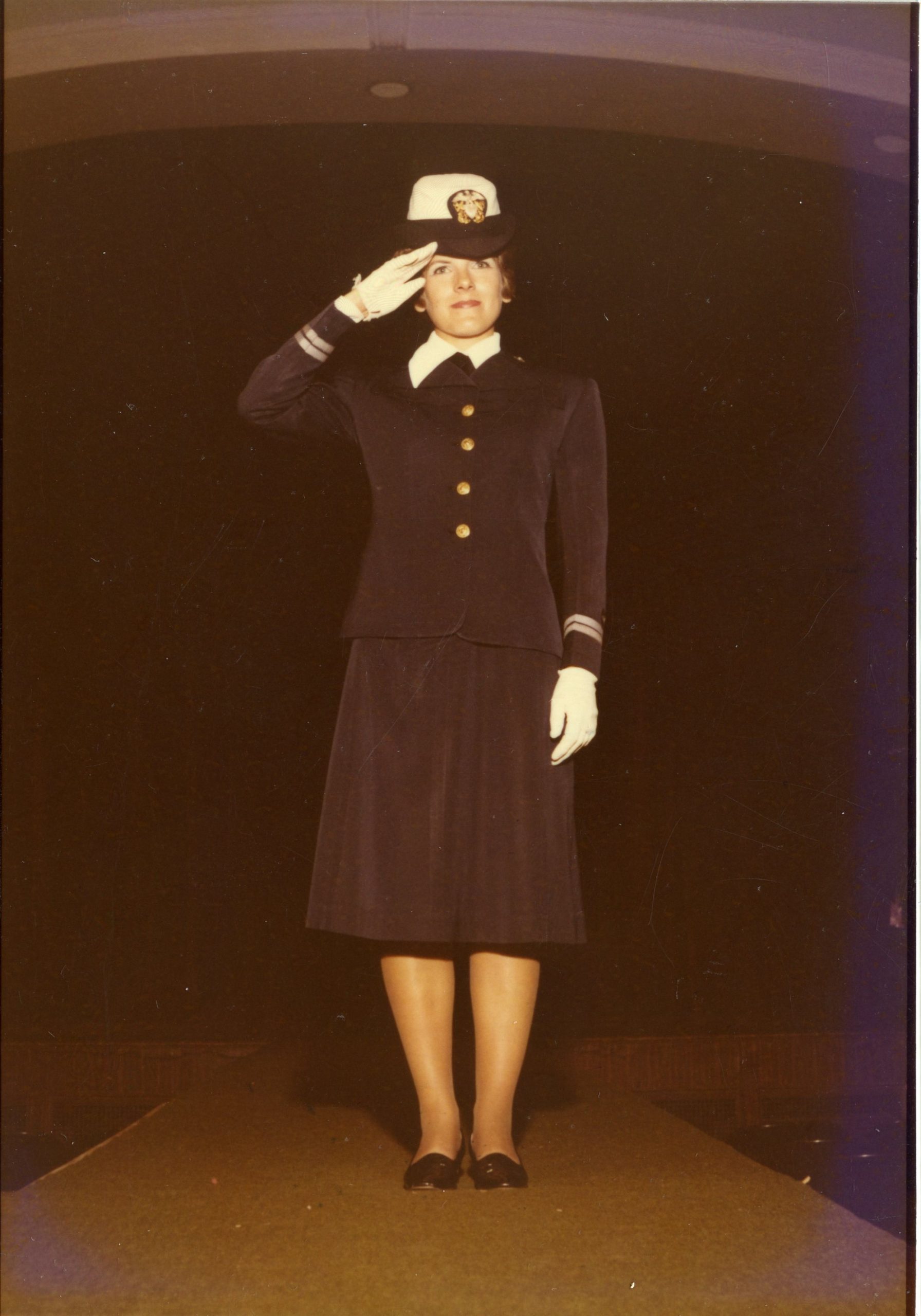
Phyllis Lainson in her naval uniform. Courtesy of Adams County Historical Society.
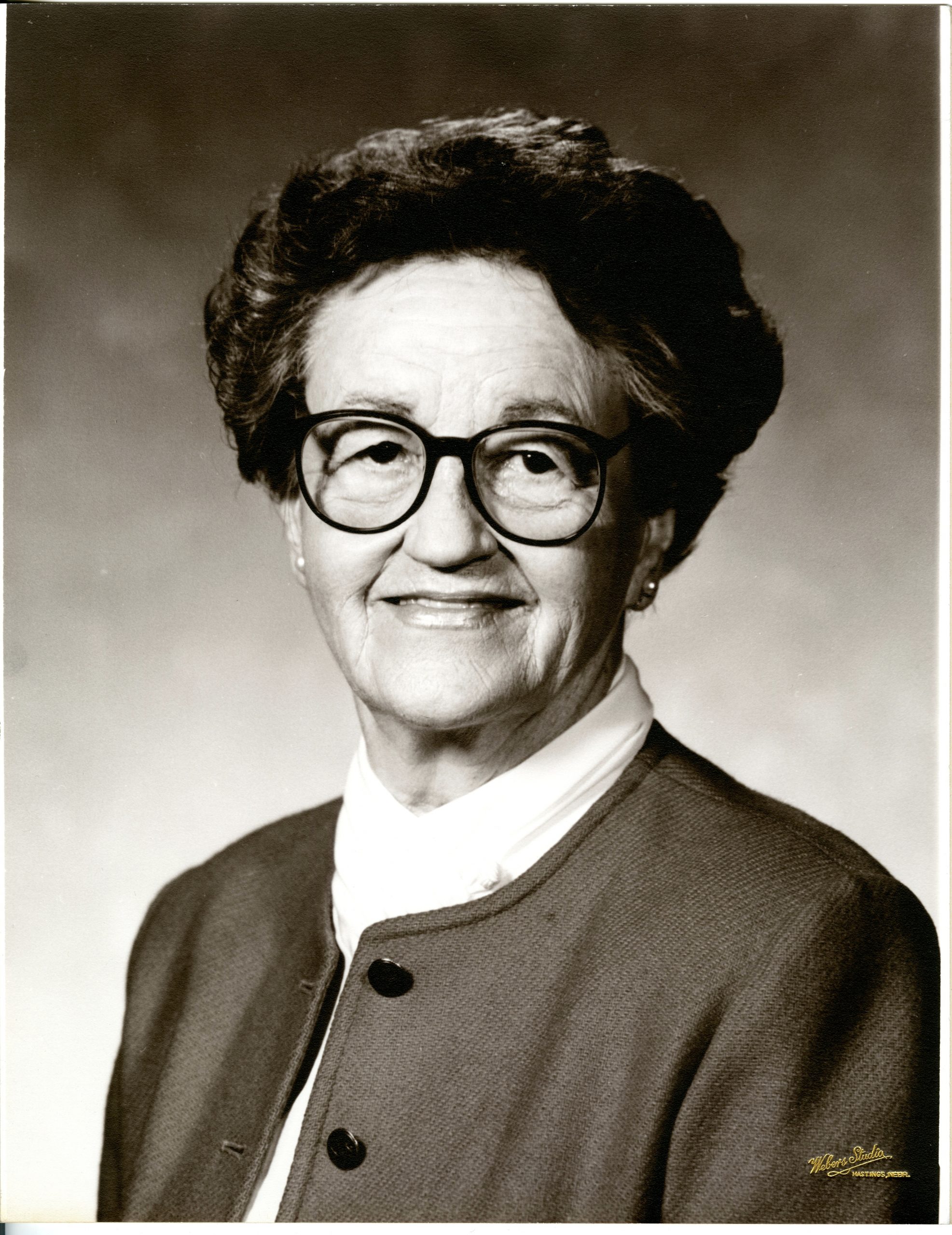
Phyllis Lainson as Mayor, 1989. Courtesy of Adams County Historical Society.
Phyllis Lainson
1920-1999
Phyllis was born on March 6, 1920, and lived in Oregon and California. She graduated from the University of California at Berkeley in 1941 with degrees in history and political science. She was commissioned as an officer in the U.S. Navy and attained the rank of lieutenant senior grade before moving to Hastings in 1946.
Phyllis served on the Hastings Board of Education for 12 years and held the position of president. She was also president of the Child Development Council of Adams County, where she was principally responsible for founding Pooh Corner, the city’s first day care center, as well as the Emergency Protective Services Center for women and children at risk.
Phyllis was also active in politics. She was chairwoman of the Adams County Republican Women and vice chairwoman of the Adams County Republican Central Committee. For 14 years, Mrs. Lainson was a member-at-large of the Republican State Executive Committee. She served on the Hastings City Council and was elected Hastings’ first and only female mayor in 1988. Some of the projects initiated while she was Mayor were the rerouting of the Union Pacific away from residential areas and development of land for commercial use North of the Hastings Museum. She held that office until 1992.
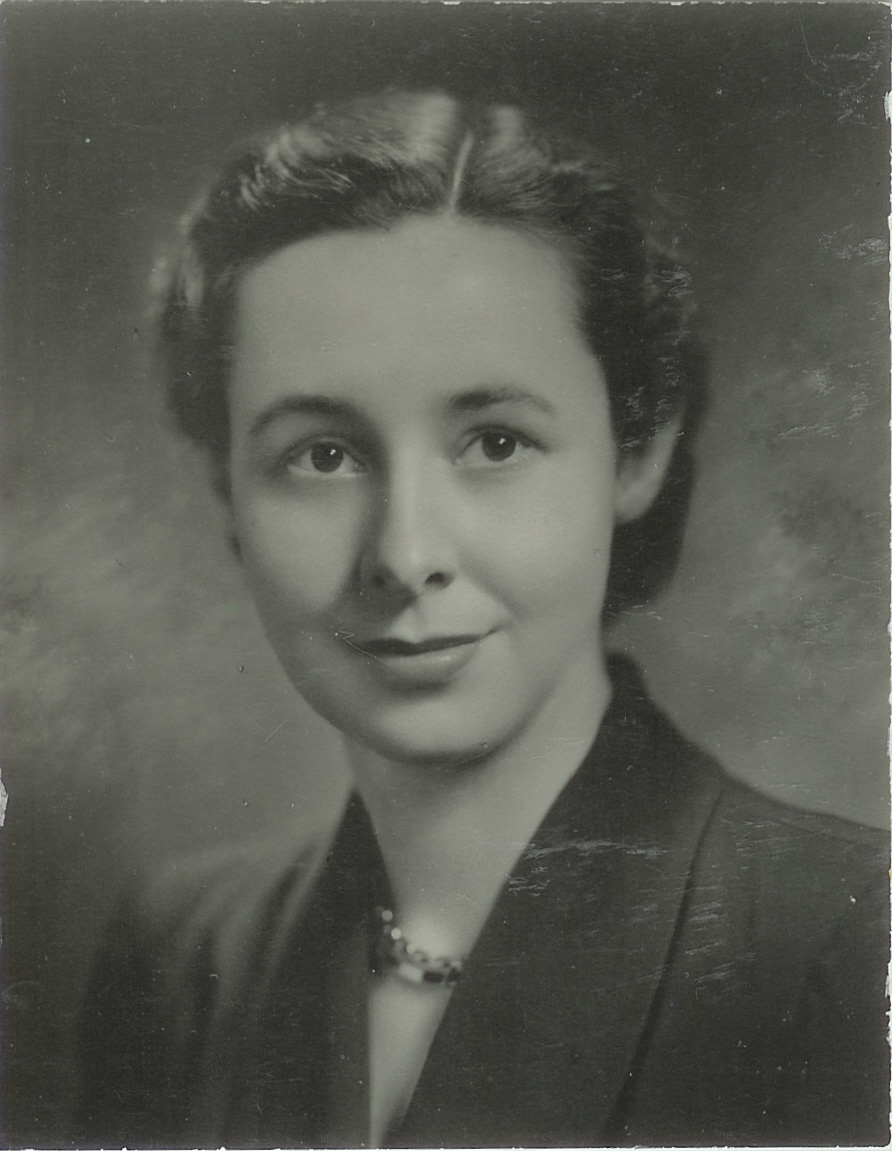
Gretchen Lainson. Courtesy of Adams County Historical Society.
Gretchen Lainson
Living
In 1916, Gretchen Holman was born in Minden, Nebraska. She graduated salutatorian of Minden High School’s class of 1933 and began her advanced education at Hastings College in 1934. She graduated in 1937 with a Bachelors in English and married Hal Lainson in 1938. Throughout her life, Gretchen has been active in her church and community. She was a member of the Chapter G, P.E.O. for over 80 years; a member of the Round Table Book Club since 1942; and the first secretary for the Hastings Area United Way.
She served on the Hastings Museum Board from 1956 to 1963 and the Hastings Public Library Board from 1956 to 1971, leading the successful bond campaign to construct the library building. She was a member of the Nebraska Library Association, serving as State President from 1969 to 1970, and received the Nebraska Library Commission’s Outstanding Trustee Award in 1973.
Gretchen was one of 21 founding members of Nebraska Committee for the Humanities, now called Humanities Nebraska. She was also a member of the first Nebraska Arts Council, which was founded in 1974.

